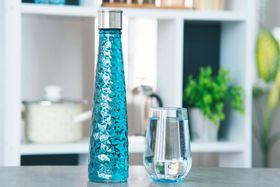4 Best Materials for Reusable Water Bottles
Published October 6, 2024.

There are several different material options when it comes to water bottles. However, when it comes to selecting the best and safest material for reusable water bottles, things can get a bit confusing. It's crucial to ensure that the bottle you drink from is safe for your health and ecosystem, regardless of its price. Purchasing a good quality water bottle is a long-term investment that will pay off.
1. Overall Best Water Bottle Material: Glass
2. Best Budget: BPA-Free Plastic Water Bottles
3. Most Durable Water Bottle Material: Stainless Steel
4. Best Lightweight: Aluminum Water Bottles
4 Types of Water Bottle Materials
1. Glass
Glass is considered to be the safest way to store water long-term. Glass water bottles are the best for storing liquid because they are eco-friendly. non-porous, and won’t affect the water's taste or odor. Borosilicate glass water bottles can be used for hot and cold drinks.
Pros
- Safe
- Reusable
- Fully recyclable
- Don't affect the flavor of the water
Cons
- Breakable
- Heavier than other types of water bottles
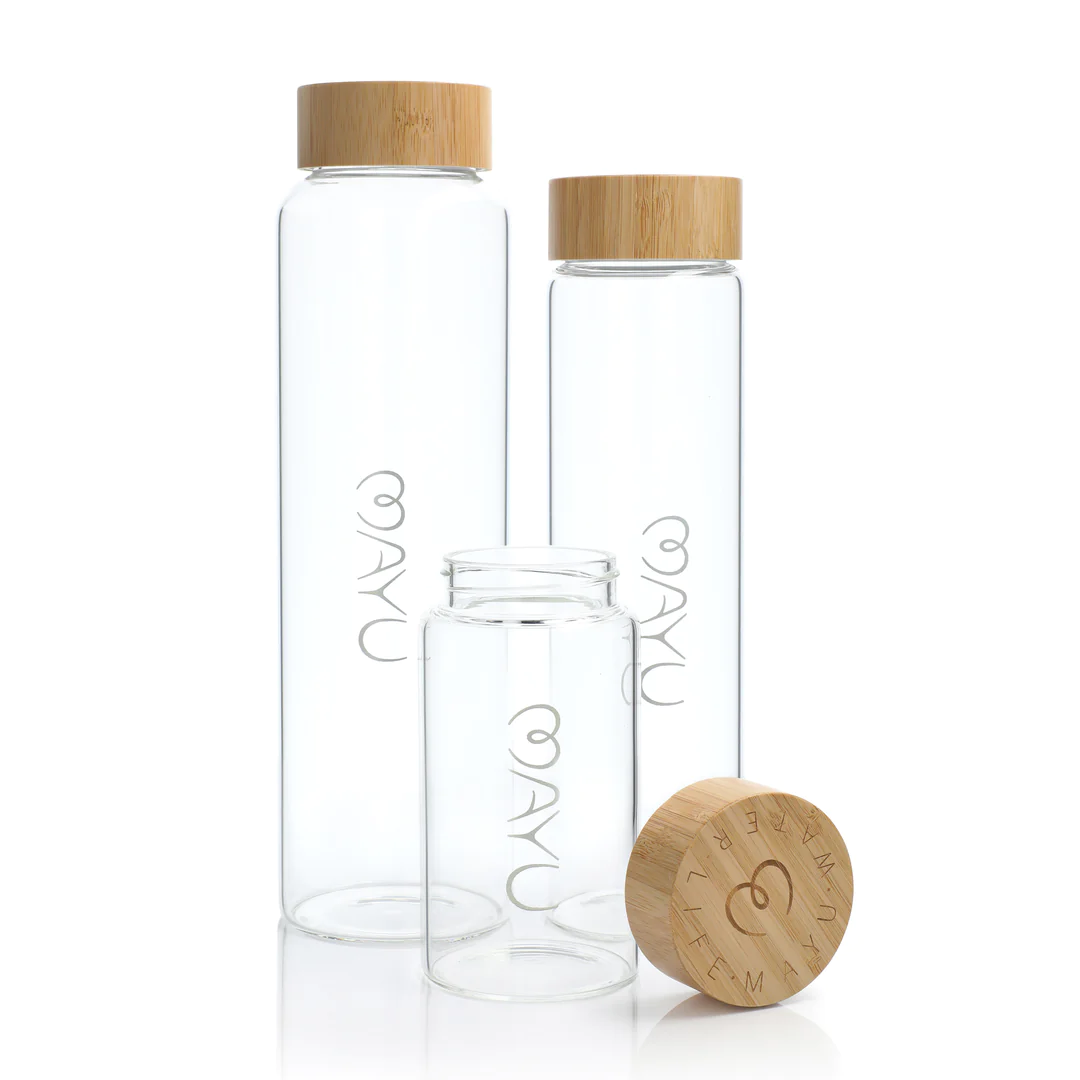
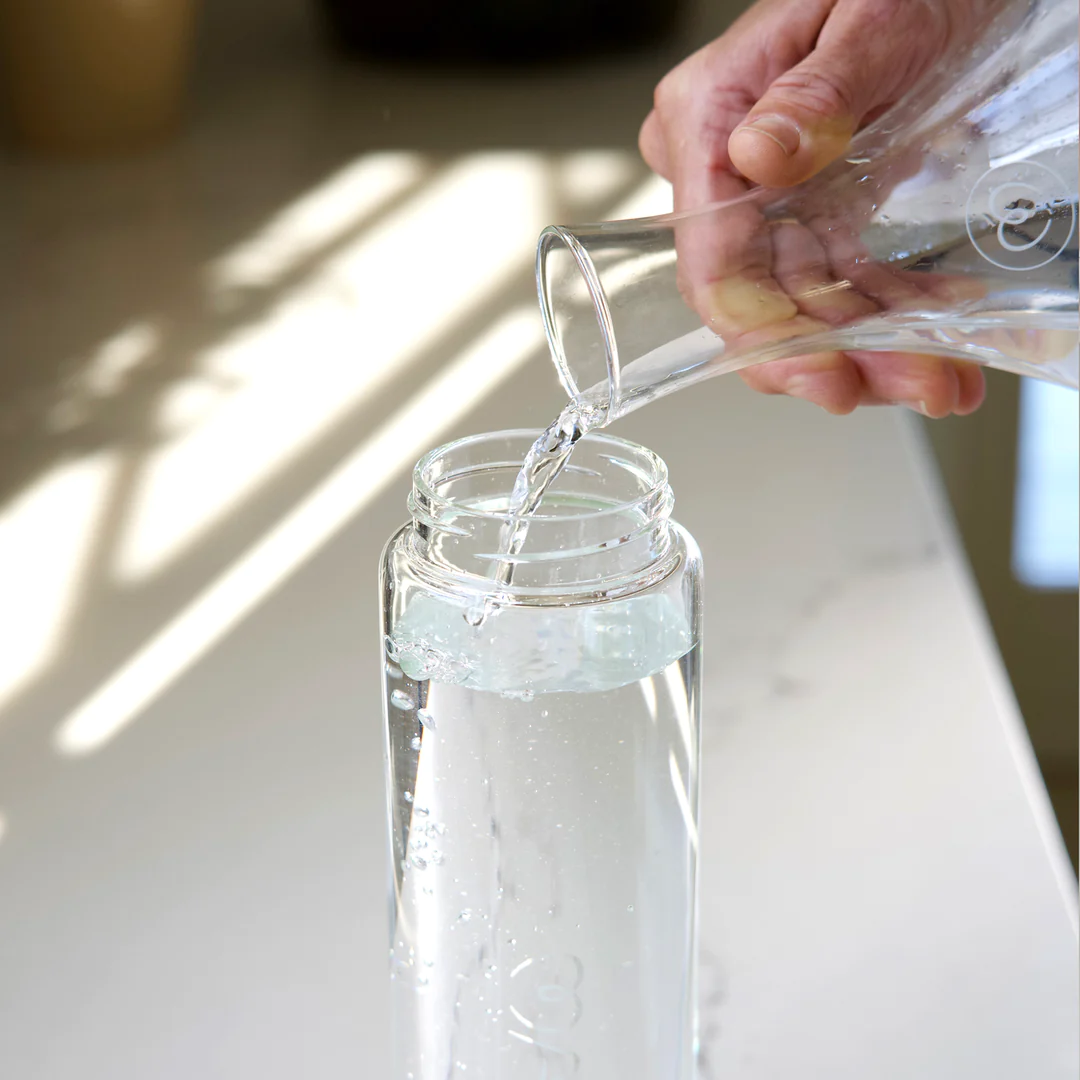
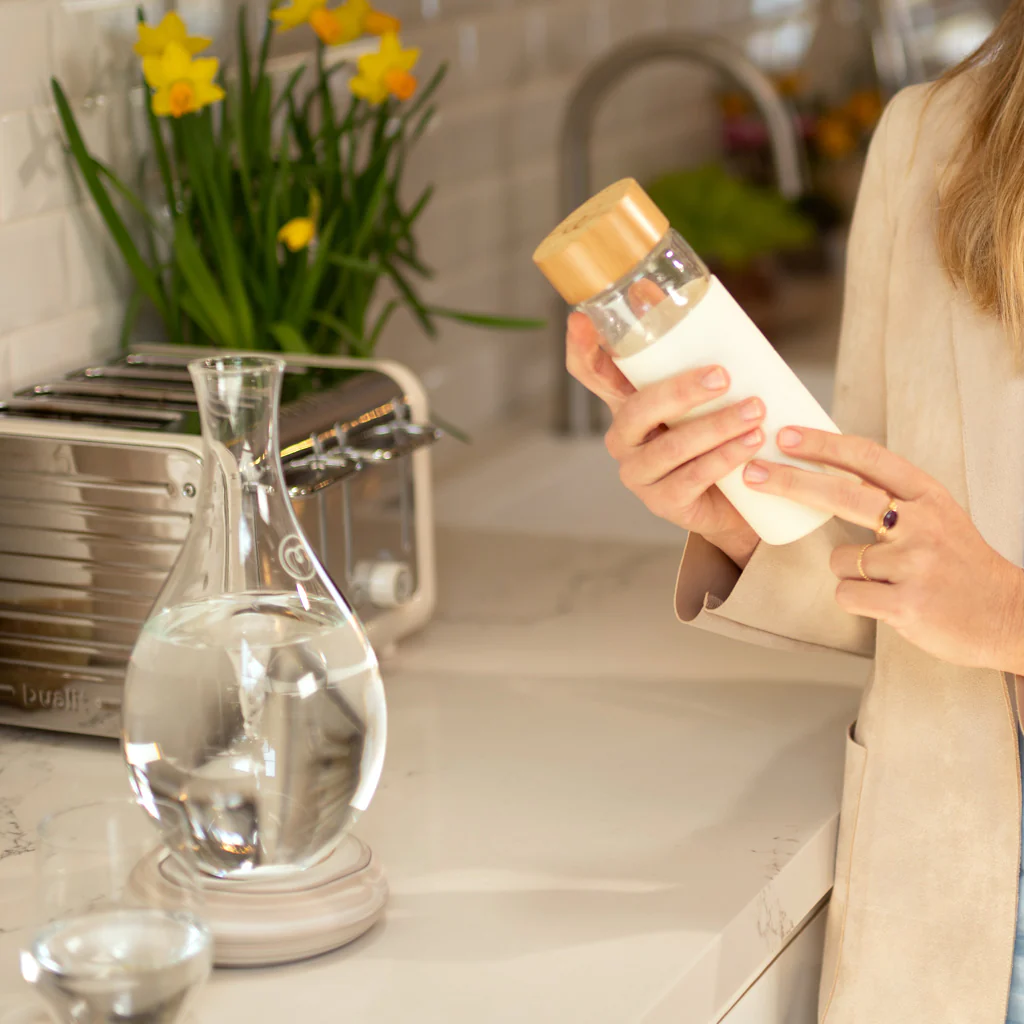
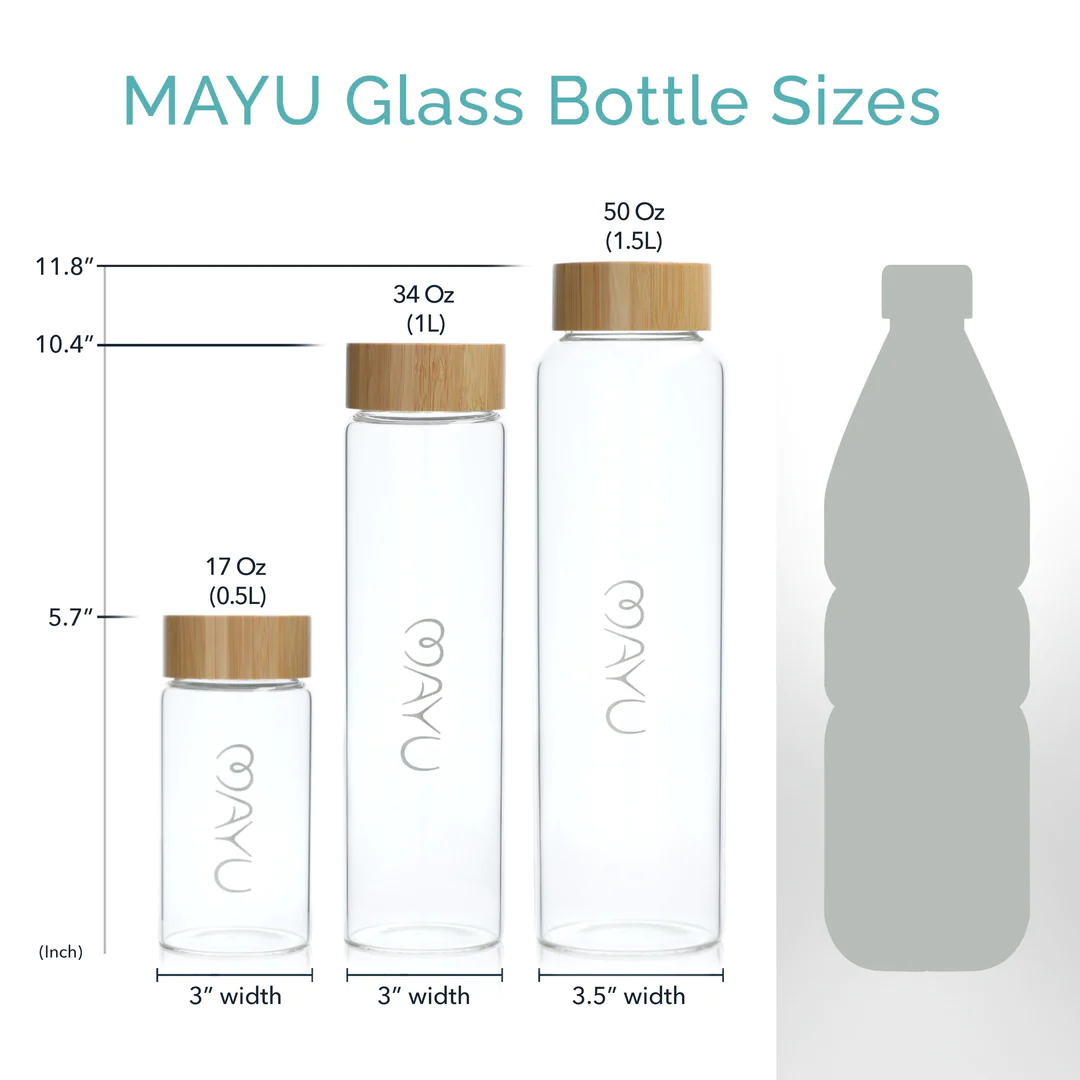
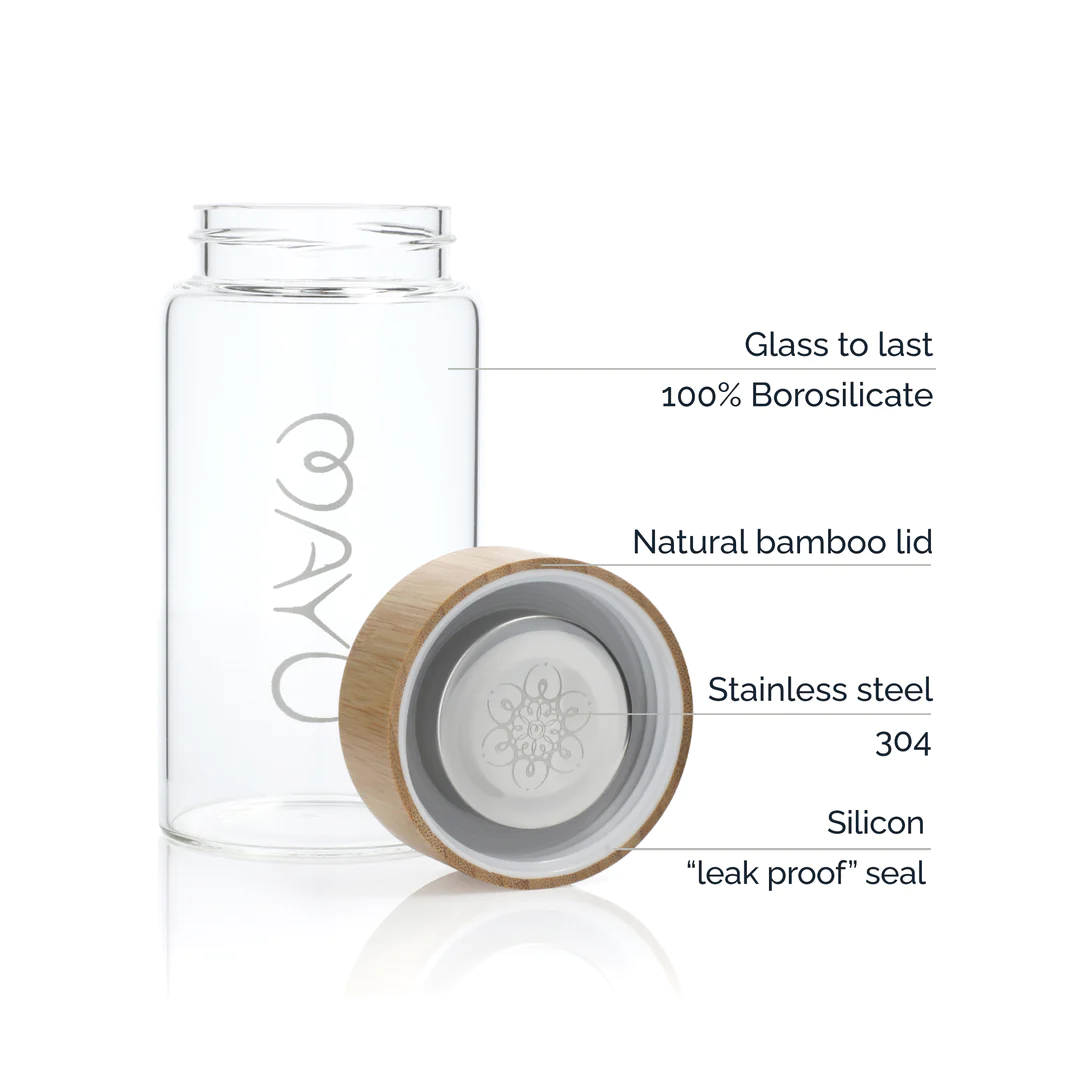
2. BPA-Free Plastic
BPA-free plastic water bottles don't contain bisphenol A (BPA) and are a safer option than disposable plastic water bottles, made of polyethylene terephthalate (PET). Disposable plastic water bottles are extremely bad for the environment and can leech toxins into the water if reused.
BPA-free plastic water bottles are a better and safer option, though they could potentially be harmful to your health. It's important to weigh up the pros and cons of BPA-free plastic before choosing it as your preferred water bottle material for optimal hydration.
Pros
- Reusable
- Inexpensive
- Lightweight
Cons
- More likely to warp
- Potentially harmful to human health
» Learn more: GLass vs. plastic water bottle: which is best for drinking?
3. Stainless Steel
These types of water bottles are made from culinary-grade stainless steel. Stainless steel water bottles ensure a non-toxic drinking experience and are easily cleaned with boiling water. The double-walled options maintain the temperature of hot and cold drinks.
Pros
- Reusable
- Durable
- Lightweight
- BPA and Phthalate-free
4. Aluminum
Aluminum water bottles are usually cheaper than stainless steel water bottles. These look like stainless steel but have to be lined with enamel or epoxy, which can wear away over time. As BPA is the main ingredient in epoxy, there are concerns about chemicals leaching into the water.
Pros
- Reusable
- Durable
- Don't retain odor
Cons
- Can make water taste metallic
- Have to be lined with epoxy or enamel, which can wear away over time
Which Option Is Best For You?
This is an entirely personal choice and depends on various factors. From a sustainability point of view, not one material is preferable to another besides disposable plastic. It's the reuse of a water bottle over single-use that matters.
All water bottle materials, besides BPA, carry minimal risk. Even if you decide to go for BPA-free plastic, it's best to get yourself familiar with the pros and cons of plastic water bottles first.
Your best bet is to pick a material you'll hold on to the longest and use the most.























